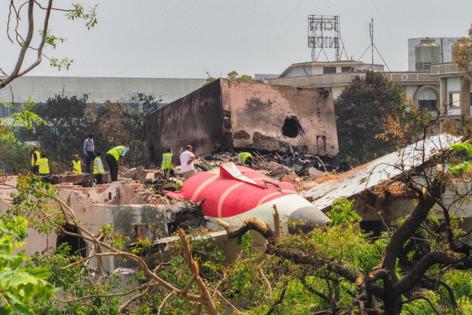Air India crash reporting is 'premature,' NTSB's Homendy says
Published in News & Features
WASHINGTON — The head of the U.S. National Transportation Safety Board said it’s too soon to draw conclusions about what caused the deadly crash of an Air India jetliner following reports that the captain of the plane likely moved switches that control the flow of fuel to the engines.
“Investigations of this magnitude take time,” NTSB Chair Jennifer Homendy said Friday in a post to social media platform X. She called recent media reports “premature and speculative,” without providing any specifics on what exactly she was referring to.
Investigators, led by India’s Aircraft Accident Investigation Bureau with the assistance of the NTSB, have been piecing together evidence to determine what caused Air India Flight 171 to crash on June 12, killing 260 people. AAIB and Air India Chief Executive Officer Campbell Wilson have also urged the public not to draw conclusions while the probe is ongoing.
It can take a year — sometimes longer — for authorities to release a final report laying out the probable cause of an accident and recommendations for avoiding future tragedies.
A preliminary report released by the AAIB found two fuel control switches on the Boeing Co. 787 Dreamliner were moved to a “cutoff” position immediately after the aircraft lifted off, starving the engines of fuel. While the move was reversed about 10 seconds later, it was too late to avert the crash.
A cockpit voice recording from the aircraft revealed that one pilot — since identified by Bloomberg and other outlets as First Officer Clive Kunder — asked the other, Capt. Sumeet Sabharwal, why he moved the switches, to which the latter replied he didn’t.
How and why the switches came to be turned off are the key lines of inquiry for investigators. Officials are probing whether it could be the result of human action — deliberate or inadvertent — or a failure of the plane’s systems.
Following the release of AAIB’s preliminary report, India’s civil aviation authority ordered an inspection of fuel switches on Boeing 737 and 787 aircraft operating in the country in an effort to ascertain whether the crash was caused by equipment failure.
Investigators at this point haven’t identified any mechanical or design issues with the Boeing plane or the engines, manufactured by GE Aerospace.
(Julie Johnsson contributed to this report.)
©2025 Bloomberg L.P. Visit bloomberg.com. Distributed by Tribune Content Agency, LLC.







Comments